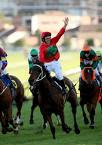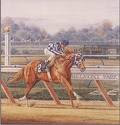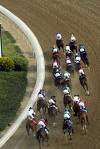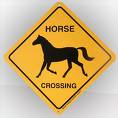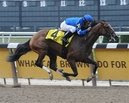The rules are supposed to be that betting stops when the bell sounds and the starting gate opens..
But it isn’t that simple in thoroughbred racing.
At the start of every race, a racing steward closes betting by pushing a button that shuts down the system. But sometimes it doesn’t work that well, like in 2007 a Lexington man at Keeneland Race Course bet on a New Orleans race after the start.
And even legitimate bets placed before the start may not be logged until afterwards, causing the odds to fluctuate during the race and prompting doubts about the system’s integrity.Changes recommended by a committee of the Kentucky Horse Racing Commission earlier this year include shutting down betting when the toteboard says zero minutes to post — typically a couple minutes before the start of the race. Currently, betting is to close when the horses actually break from the gate.
A vote on the proposed changes was tabled at the commission’s October meeting – after some contentious debating.
Commission chairman Bob Beck, a Lexington equine attorney, said earlier this month that the issue isn’t dead. It will be a focus of the agency’s newly hired supervisor of pari-mutuel wagering, Greg Lamb, who joined Dec. 1, he said.
It’s a thorny problem for the industry at large and Kentucky thoroughbred racing, which saw $1.2 billion bet on its races last year and $251 million wagered from Kentucky tracks on races elsewhere.
Proponents say Kentucky should take a stand for wagering integrity and if it means gamblers put more money on other states’ races, the shift would be temporary.
Opponents – namely racetracks – say it’s too big of a gamble and that the idea would cost Kentucky thousands of dollars in wagering and tax revenue. Many horse players make their bets in the final minutes before a race starts.
But the current system has created – at a minimum a perception problem among bettors, Beck said.
“It is in the best interest of racing generally for the players to be completely comfortable with the system, and if they perceive some shortcomings in the system then I think it is incumbent upon us to do some investigation and address those shortcomings if they’re there,” he said.Racetrack operators have criticized the proposal, saying it would reduce betting, race purses and state tax revenues, by cutting off the large volume of money that is bet in the final minutes before the start of a race. Bettors might instead,wager on tracks where they can have more time to bet, they said.
Kevin Flanery, president of Churchill Downs, said the racetrack saw on-track betting drop 20 percent in 2002 when wagers were cut off before post time — a move that Churchill and other tracks implemented, and shortly abandoned, following a wagering scandal in that year's Breeders' Cup.
Flanery also said the proposed fix may not address the public perception of a problem, since the technology by which bets are taken wouldn't be changing — meaning odds could still change after the close of wagering because of delayed reporting.
Committee member Mike Maloney, a full-time horseplayer from Lexington, said that gains in integrity — with bettors being able to see odds they could trust before the race’s start — would outweigh what he believed would be short-term downturns in betting. Committee members said they hoped other states would follow suit.I would have liked to have seen something happen” already, he said. “I’m still hopeful that we’ll get there eventually.”
The Thoroughbred Racing Protective Bureau, a investigative offshoot of the Thoroughbred Racing Associations of North America said Dec. 17 that it has developed a strategy for racetracks and commissions to address perceived issues, but details are not being released for security reasons.
Ned Bonnie, a racing commissioner and member of the Kentucky committee, said he’s glad the protective bureau is working on the problem, but said the wagering integrity issues are still a long way from being solved.
Maloney went public in 2007 with his own experience of being able to make bets at Keeneland Race Course on a race at Fair Grounds in New Orleans well after it had started. A track spokesman at the time said that a shut-off button malfunctioned and that betting was stopped partway through the race by someone in the tote department.
Since then, Maloney has campaigned to improve wagering integrity. Maloney said the solutions proposed by the committee were the best available.
“The perfect solution would be to spend the money to upgrade the tote system,” Maloney said. “There are drawbacks to any fix that you come up with that’s short of having a state-of-the-art tote system. It wasn’t a perfect fix. It was just something that after a lot of discussion and a lot of work we thought was the best alternative at this time.”.










